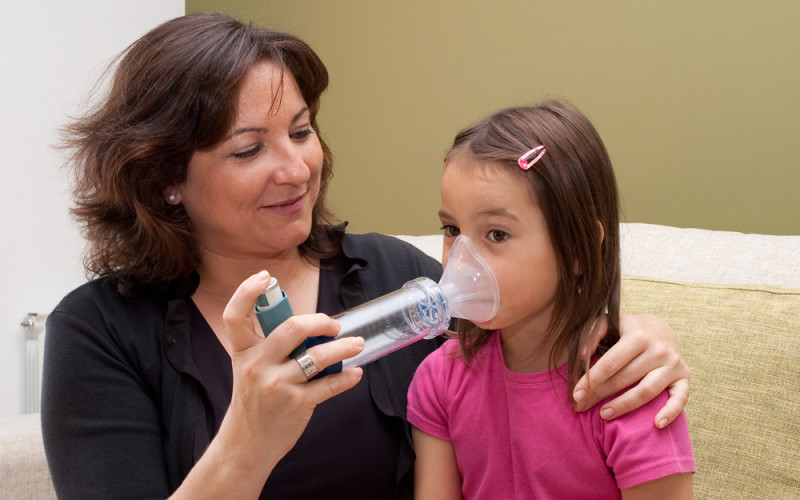Should you worry if your child is wheezing?

Sometimes children make funny or loud noises when they breathe. Your child’s doctor may tell you that he is wheezing. But what is wheezing? And why do children wheeze? And more importantly, what do you do when your child wheezes?
When we breathe, we move air into and out of our lungs. Breathing allows our body to get the oxygen it needs because oxygen is in the air we breathe. The air moves into and out of our lungs through a series of tubes that connect the mouth and nose to the lungs. Another word for the series of tubes is “airways.” If the airways become tighter or narrower for any reason, the air has trouble moving into and out of the lungs. When this happens, wheezing can occur.
A wheeze is a noise made when air cannot easily move through the airways in the lungs. It sounds a bit like a whistle. When a person makes this noise while breathing, we say he is wheezing. Sometimes, the wheezing is quiet and can only be heard by the doctor with a stethoscope. But sometimes the wheezing is very loud. True wheezing always comes from the chest. Wheezing is not the same thing as a loud noise or whistle that a child may make because of severe stuffy nose. Wheezing is also different from snoring.
The airways in the lungs can get tighter and cause wheezing by two main ways. One is that the thin layers of muscle around the airways can tighten, causing the airway to become more narrow. Another is that mucous and inflammation can line the inside wall of the airway, blocking the flow of air.
There are a few conditions that may make children wheeze. The most common reason children wheeze is asthma. Asthma is a chronic medical condition where a child’s airways are extra responsive to certain things, which we call “triggers.” When the child experiences one of these triggers, the airways respond by tightening and becoming inflamed. Common triggers are upper-respiratory infections (also known as “colds”), smoke, exercise or pollen. The tightening of the muscles around the airways causes the airways to narrow, which then causes the wheezing. The airways also get inflamed in response to the triggers, which also narrows the airways and causes wheezing. Inhaled medications, such as albuterol, help reverse the airway narrowing.
When a young child gets a cold, the virus that causes the cold often causes the child to wheeze. Since the airways in a baby’s lungs are so much smaller than an adult’s, just a little bit of inflammation from the virus can actually cause the baby to have difficulty breathing. Wheezing can be one of these symptoms. When a virus causes these symptoms in a baby, the condition is called “bronchiolitis.” Respiratory syncytial virus (RSV) is the name of the most common virus that causes bronchiolitis, but other viruses can cause bronchiolitis as well. Unlike with asthma, medications like albuterol don’t usually help bronchiolitis much. As with a cold, there is no cure except time.
If your child is diagnosed with bronchiolitis, it’s best to support the child through the illness. It’s important to make sure your baby is drinking in order to stay hydrated. Do not use over-the-counter cough or cold medicines for infants and young children. These medicines are not recommended in children younger than four because they have not been shown to work, and they can have dangerous side effects. Most importantly, call your doctor or seek medical attention if your baby wheezes, has difficulty breathing, is not drinking, is acting very sick or has a fever. Babies with bronchiolitis seem to have a higher chance of wheezing again during early childhood, but this does not mean they will have asthma or will wheeze for the rest of their life.
Other things can also make a child wheeze. For example, if a child with allergies is exposed to something he is allergic to (like peanuts), the child may have a severe reaction and wheeze. If a child chokes on something, such as a piece of food or a small toy, a child may wheeze. A virus can also cause older children to wheeze on occasion as well, even if they do not have asthma. But these are all much less common causes of wheezing.
Don’t forget, if you are worried that your child is having trouble breathing, you should seek medical attention. If your child ever stops breathing, turns blue or gray, has severe difficulty with their breathing, or has any other emergency, call 911. It can be difficult to tell why a child is wheezing, and your child’s doctor can help determine what is wrong and what to do.